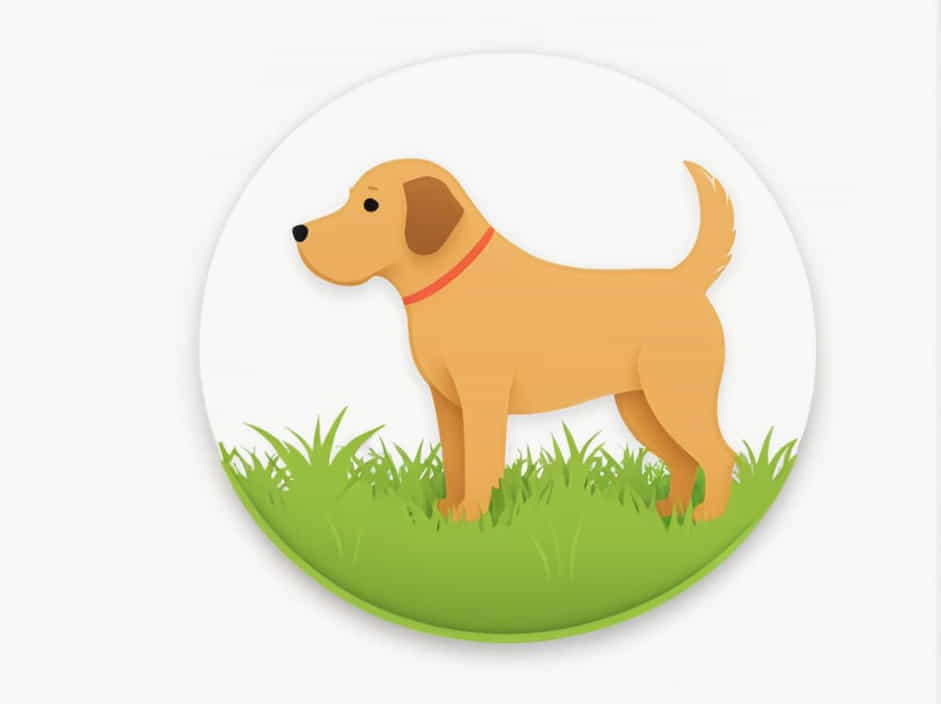Many dog owners have witnessed their pets frantically eating grass as if they were starving. This behavior can seem strange, even alarming, especially when it happens suddenly or excessively. But why do dogs eat grass, and is it something to worry about?
Dogs eat grass for various reasons, ranging from digestive issues, boredom, instinct, or even nutritional deficiencies. Understanding the cause behind this behavior can help you determine whether it’s normal or if your dog needs medical attention.
Is It Normal for Dogs to Eat Grass?
Yes, grass-eating is common in dogs. Many veterinarians consider it a natural behavior, not necessarily a sign of illness. However, if your dog is eating grass in a manic or obsessive manner, it could indicate an underlying issue.
Reasons Why Your Dog Is Eating Grass Manically
1. Upset Stomach or Nausea
One of the most common reasons dogs eat grass is to relieve stomach discomfort. Grass acts as a natural indigestible fiber that can help dogs vomit, which may clear out toxins or irritants from their stomachs.
Signs of stomach issues include:
✔ Excessive drooling
✔ Gulping or licking lips
✔ Vomiting after eating grass
✔ Reduced appetite
2. Nutritional Deficiency
If your dog’s diet lacks fiber or essential nutrients, they might eat grass as a way to compensate. Dogs instinctively seek out plant material to balance their digestion.
Possible deficiencies include:
✔ Lack of dietary fiber
✔ Insufficient vitamins and minerals
✔ Low-quality commercial dog food
3. Boredom or Anxiety
Just like humans chew on nails or pens when stressed, dogs may eat grass as a coping mechanism. If a dog is not getting enough mental or physical stimulation, they may engage in compulsive behaviors like frantic grass-eating.
Signs of boredom/anxiety:
✔ Excessive chewing on objects
✔ Pacing or restlessness
✔ Excessive barking
✔ Destructive behavior
4. Instinctive Behavior
Dogs are descendants of wild canines, which often ate plant matter along with their prey. Some dogs still retain this natural foraging instinct and may simply enjoy eating grass as part of their normal behavior.
5. Enjoyment of Taste or Texture
Some dogs simply like the taste and texture of grass. Fresh, dewy grass can be appealing, especially in spring and summer when it’s soft and cool.
6. Intestinal Parasites or Digestive Issues
If your dog is constantly eating grass and showing signs of discomfort, it could be due to intestinal worms or digestive imbalances. Grass may help soothe the irritation caused by parasites.
Signs of parasites include:
✔ Weight loss
✔ Diarrhea or bloating
✔ Increased appetite but no weight gain
✔ Visible worms in stool
7. Attention-Seeking Behavior
Some dogs learn that eating grass gets a reaction from their owners. If they feel ignored, they might engage in this behavior just to get attention.
Should You Be Concerned?
In most cases, grass-eating is harmless. However, if your dog is eating grass excessively or showing additional symptoms like vomiting, diarrhea, lethargy, or a change in appetite, you should consult a veterinarian.
How to Stop Your Dog from Eating Grass Manically
1. Improve Their Diet
If your dog is eating grass due to nutritional deficiencies, switching to a high-quality, fiber-rich diet can help. Look for dog food that contains:
✔ Real meat protein
✔ Vegetables and natural fibers
✔ Omega fatty acids and vitamins
2. Provide More Mental and Physical Stimulation
A bored dog is more likely to develop obsessive behaviors, including excessive grass eating. Keep your dog engaged by:
✔ Increasing playtime and daily walks
✔ Providing chew toys and puzzle feeders
✔ Training new tricks to keep their mind active
3. Rule Out Medical Issues
If your dog is vomiting frequently or showing signs of discomfort, bloating, or diarrhea, schedule a vet check-up to rule out:
✔ Stomach ulcers
✔ Parasites
✔ Food intolerances
4. Reduce Stress and Anxiety
If stress is causing your dog to eat grass, try:
✔ Creating a calm and predictable environment
✔ Using calming treats or pheromone diffusers
✔ Spending more quality time with your pet
5. Make Your Yard Safer
If your dog eats grass regularly, ensure that it is free of pesticides, herbicides, or toxic plants.
Manic grass-eating in dogs can be due to digestive issues, boredom, instinct, or nutritional deficiencies. While occasional grass-eating is normal, excessive or frantic behavior could indicate an underlying issue. Ensuring a balanced diet, regular exercise, and proper vet care can help reduce this behavior and keep your dog healthy.
